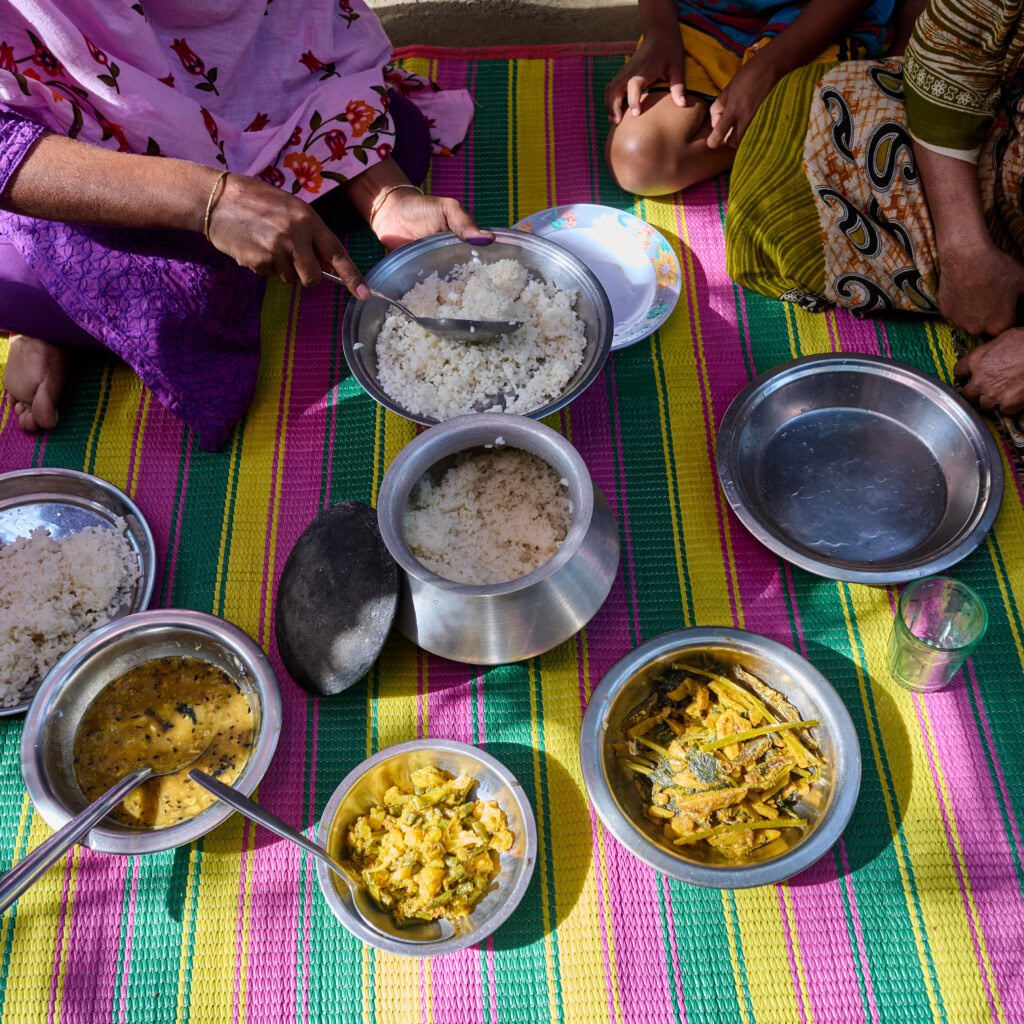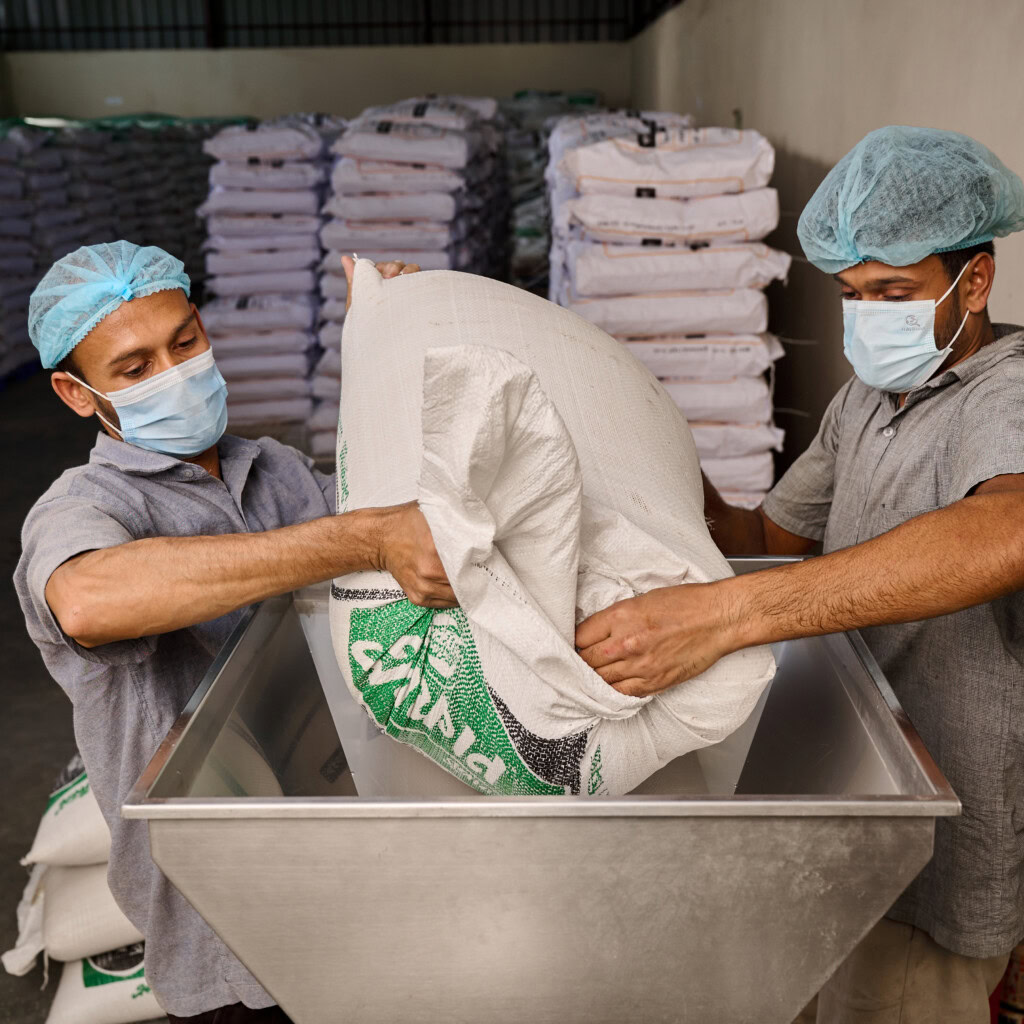Our country-level support for large-scale food fortification (LSFF) focuses on providing technical assistance to governments and industry partners, advocacy to ensure LSFF is adequately resourced and prioritized within policies and regulations, strengthening the evidence base and leveraging existing market-based platforms. This includes harnessing social safety net programs as the primary delivery platform to improve access to critical micronutrients. Additionally, we work with national governments, industry and other partners to scale up universal salt iodization to help eliminate iodine deficiency disorders by supporting policy development, bolstering legislative and regulatory frameworks as well as building the capacity of micro- and small-scale processors for more effective iodization.
In the Philippines, we launched a two-year initiative to improve the nutritional status and wellbeing of women, children and adolescent girls by improving policies on wheat flour fortification and universal salt iodization (USI).
We conducted sex- and gender-based analyses in Pakistan and Ethiopia to identify gender-specific barriers and enablers for improving the health and wellbeing of the individual and the family, to assess gender equality within the LSFF supply chain, and to highlight strategies to promote gender equality and women’s empowerment within LSFF. Countries like Ethiopia and Indonesia have also developed LSFF/USI gender action plans to help tailor interventions to meet the diverse needs of communities.
At the global level, we continue to play a leading role in advancing the food fortification agenda. In May 2023, the World Health Assembly unanimously adopted the Nutrition International-supported resolution titled, “Accelerating efforts for preventing micronutrient deficiencies and their consequences, including spina bifida and other neural tube defects, through safe and effective food fortification.” This decision is driving global momentum for fortification strategies and financing.
As a result of our efforts, 379 million people had improved access to fortified foods, which resulted in approximately 12 million cases of anaemia averted. Additionally, more than 545 million people, including 141 million women aged 15 to 49 years, were reached with adequately iodized salt, averting over 260,000 mental impairments and protecting 11.6 million newborns.


